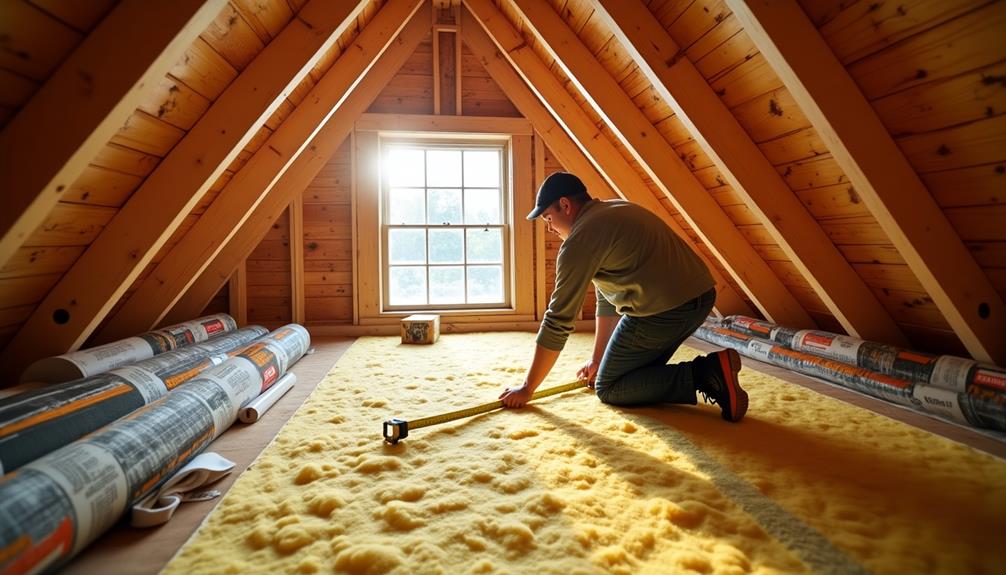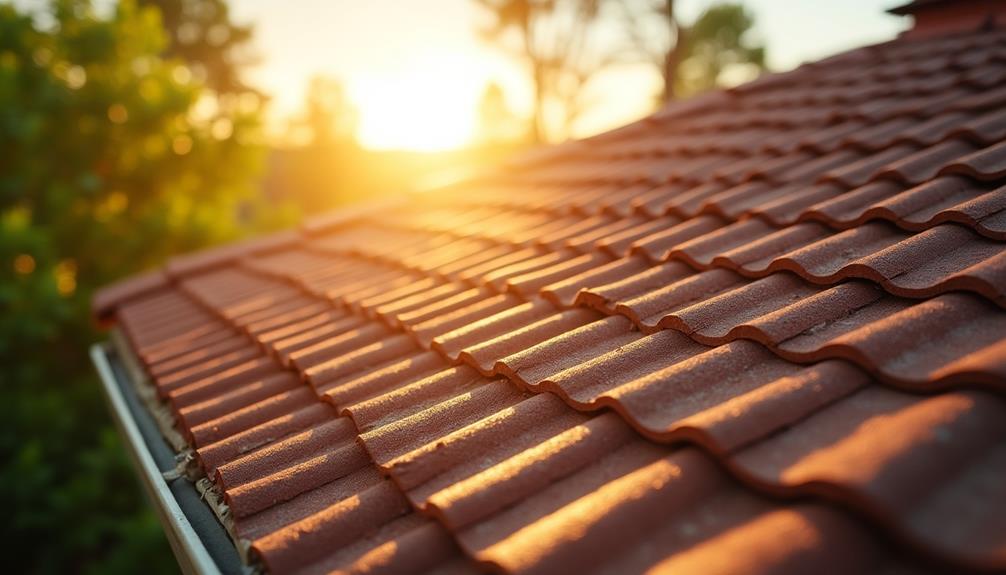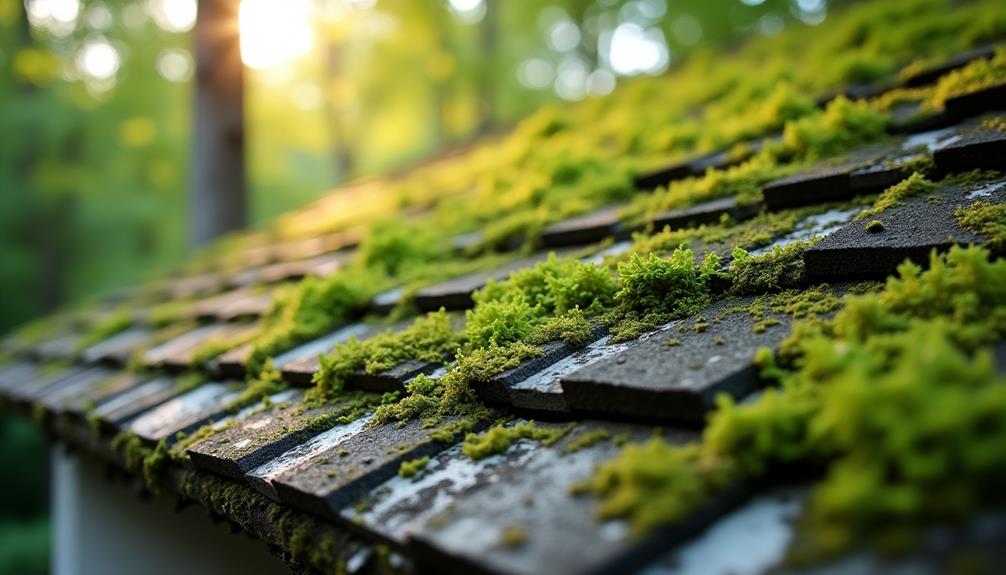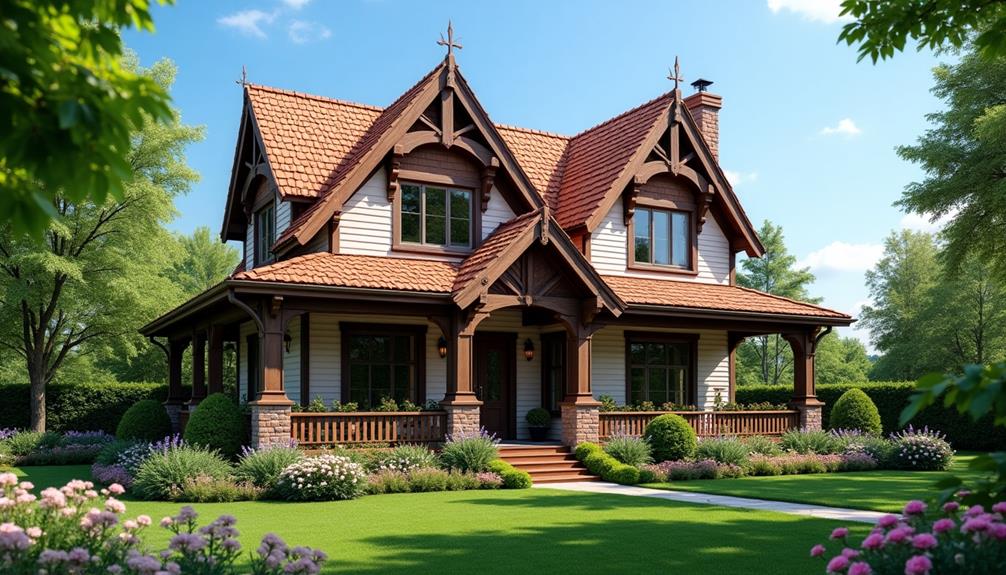Choosing the right roof for your business's building involves several key factors. First, assess your building's specific needs, considering local regulations and long-term maintenance. Next, evaluate the local climate, which influences material selection for durability and energy efficiency. Analyze roofing materials based on longevity, aesthetic appeal, and cost-effectiveness. Ensure energy-efficient options are considered, as they can save on operational costs. Don't overlook budget constraints and potential warranties, which can protect your investment. Finally, consulting with professionals can provide invaluable insights tailored to your unique situation. By taking these steps, you can make an informed decision that supports your business's goals.
Assess Your Building's Needs
When you assess your building's needs, it's crucial to consider factors like climate, building materials, and usage.
Start by reviewing your local roofing regulations and building codes, as they dictate the materials and design you're allowed to use. These codes ensure your roof meets safety and durability standards, which can save you from costly repairs down the line.
Next, think about the specific requirements of your business. For instance, if your building hosts heavy equipment or has a high foot traffic area, you'll need a roof that can withstand additional weight.
Consider insulation and energy efficiency as well; a well-insulated roof can reduce heating and cooling costs significantly.
Also, evaluate the long-term maintenance needs. Some roofing materials require more upkeep than others, impacting your operational budget.
Finally, don't overlook aesthetic considerations. Your roof is a visible part of your building's facade and can influence your business's image.
Balancing these factors will help you choose a roof that not only complies with roofing regulations and building codes but also suits your operational needs effectively.
Consider Local Climate
When choosing a roof for your business, you need to consider your local climate carefully.
Analyzing weather patterns helps you select materials that can withstand extreme conditions, ensuring durability.
Additionally, think about energy efficiency; the right roofing can significantly reduce heating and cooling costs throughout the year.
Weather Patterns Analysis
Analyzing local weather patterns is crucial for selecting the right roof for your business. You need to consider how seasonal impacts affect your area. For instance, if you experience heavy snowfall in winter, a roof with a steep slope can help prevent snow accumulation, reducing the risk of leaks or structural damage.
In warmer climates, you might prioritize roofs that reflect sunlight, as this can lower cooling costs and improve energy efficiency.
Additionally, storm frequency is another vital factor. If your region frequently experiences severe storms or high winds, it's essential to choose roofing materials that can withstand such conditions. Look for roofs rated for wind resistance to ensure your investment lasts.
Don't forget to consider the materials' ability to handle local precipitation levels, whether it's rain, hail, or snow. Each weather pattern presents unique challenges, and understanding these will guide you in making an informed decision.
Material Durability Factors
Understanding the local climate not only helps in assessing weather patterns but also plays a significant role in determining material durability. Different roofing materials respond uniquely to environmental conditions, such as temperature fluctuations, humidity, and precipitation levels.
For instance, if your business is located in an area with heavy snowfall, you'll want a roof that can handle the weight and resist ice dam formation.
When selecting roofing materials, consider their performance under local climate stresses. Materials like metal and slate often offer superior longevity in harsh conditions, while asphalt shingles may require more frequent replacement in extreme climates.
Additionally, implementing effective maintenance strategies is crucial for prolonging material life. Regular inspections can help you identify potential issues early, allowing for timely repairs that prevent costly damage.
For instance, in areas with high winds, ensuring that fasteners are secure can significantly enhance your roof's durability.
Ultimately, understanding how your local climate impacts material performance will guide you in making informed decisions about your roof, ensuring it stands the test of time while minimizing maintenance costs.
Energy Efficiency Considerations
How can you ensure your roof contributes positively to your business's energy efficiency?
First, consider your local climate. In warmer regions, a reflective roofing material can minimize heat absorption, reducing the need for excessive air conditioning.
Conversely, if you're in a colder climate, you'll want to focus on insulation options that keep heat inside during winter months.
Another important consideration is solar panel integration. If your area receives ample sunlight, incorporating solar panels into your roof design can significantly lower your energy bills. Not only do these panels provide renewable energy, but they also contribute to your building's overall energy efficiency.
Additionally, evaluate the insulation options available. High-quality insulation can prevent heat loss or gain, making your HVAC system more efficient and reducing energy consumption.
Look for materials that are suitable for your climate to maximize their effectiveness.
Evaluate Roofing Materials
When evaluating roofing materials, you need to consider their durability, energy efficiency, and overall cost-effectiveness.
Different materials offer varying levels of resistance to weather conditions and can significantly impact your energy bills.
Material Durability Considerations
As you evaluate roofing materials for your business, durability should be at the forefront of your decision-making process. Choosing a roof that can withstand harsh weather conditions, such as extreme temperatures, heavy rains, and strong winds, is crucial for long-term reliability. Materials like metal, slate, and concrete tiles are known for their robustness and lifespan, often lasting over 50 years with proper maintenance.
Consider the sustainability features of the materials you're looking at. Some options, like recycled metal or certain types of shingles, not only offer durability but also contribute to eco-friendly building practices. This can enhance your company's reputation and potentially lower energy costs in the long run.
Don't overlook the installation processes, either. A well-installed roof can significantly impact its overall durability. Poor installation can lead to leaks and damage, even with the best materials.
Energy Efficiency Options
Energy efficiency is a critical factor to consider when evaluating roofing materials for your business. Choosing the right roofing can significantly impact your energy consumption and operational costs.
One effective option is to invest in materials that support solar panels. These roofs are designed to accommodate the weight and installation requirements of solar technology, allowing you to harness renewable energy and reduce your electricity bills.
Additionally, consider insulation upgrades. High-quality insulation can prevent heat loss in winter and keep your building cooler in summer, ultimately lowering your energy needs.
Materials like reflective roofing or those with built-in insulation properties can enhance your building's thermal performance, making it more energy-efficient.
When selecting roofing materials, look for options with high R-values, which indicate better insulation effectiveness. You might also explore green roofing systems that incorporate vegetation, providing natural insulation and reducing heat absorption.
Assessing these features won't only optimize your energy efficiency but also contribute to a sustainable business model. By prioritizing energy-efficient roofing options, you'll create a more comfortable environment for your employees and customers while supporting long-term cost savings.
Cost-Effectiveness Analysis
How can you ensure that your roofing investment delivers long-term value for your business? Conducting a cost-effectiveness analysis is crucial.
Start by evaluating various roofing materials based on their initial costs, longevity, and maintenance requirements. For instance, while asphalt shingles might be cheaper upfront, metal or tile roofs often offer better durability and require less maintenance over time.
Consider the potential return on investment (ROI) for each option. A more expensive roof might seem daunting, but its longevity and energy efficiency can lead to significant long-term savings.
Look at warranties and expected lifespan; a roof that lasts 50 years could save you from the hassle and expense of reroofing sooner than expected.
Don't forget to factor in energy efficiency. A well-insulated roof can reduce your heating and cooling costs, contributing to your overall savings.
Additionally, consider local climate conditions—some materials perform better in specific environments, enhancing their effectiveness and efficiency.
Analyze Energy Efficiency
When selecting a roof for your business, analyzing energy efficiency is crucial for reducing operational costs and enhancing sustainability. A roof that promotes energy efficiency can significantly lower your heating and cooling expenses, making it a smart investment.
Consider the materials you choose—reflective roofing materials can help keep your building cooler in the summer, while high-quality insulation techniques can reduce heat loss in winter. Combining these elements creates a more energy-efficient environment.
If you're thinking about integrating renewable energy sources, installing solar panels on your roof can be a game-changer. Not only do they provide clean energy, but they can also offset your electricity costs and even generate income through energy credits.
Additionally, pay attention to the roof's slope and ventilation, as these factors also influence energy efficiency. Proper ventilation prevents heat buildup, enhancing the lifespan of your roofing materials and increasing comfort inside your building.
Budget and Cost Considerations
While energy efficiency plays a significant role in roofing decisions, budget and cost considerations are equally important. You need to assess your financial resources before settling on a roofing option.
Start by determining your budget, including both initial installation costs and long-term expenses. Remember that higher-quality materials often come with a steeper price tag, but they may save you money in maintenance and energy bills over time.
Explore financing options that could ease the financial burden. Many roofing contractors offer payment plans or partnerships with lenders, allowing you to spread costs over time.
Additionally, look into potential tax incentives available for energy-efficient roofing systems. These incentives can significantly reduce the overall cost, making it more feasible to invest in a sustainable option.
Be sure to factor in any state or federal programs that support green initiatives. This not only helps with your budget but also aligns your business with environmentally friendly practices.
Maintenance Requirements
Regularly assessing maintenance requirements is crucial for ensuring the longevity and performance of your roofing system. Different roofing technologies require varied levels of upkeep, so understanding your specific roof type will help you tailor your maintenance approach.
For instance, flat roofs often need more frequent inspections due to potential water pooling, while pitched roofs might require less frequent checks but careful attention to gutters and downspouts.
It's also essential to consider the condition of your commercial insulation. Proper insulation not only enhances energy efficiency but can also affect the roofing system's overall durability. If insulation is compromised, it can lead to moisture buildup, which could damage both the roof and the building's structure.
Schedule regular inspections, ideally twice a year, and after severe weather events. During these inspections, look for signs of wear, such as cracks or blisters, and address any issues promptly.
Additionally, keep an eye on the drainage systems to prevent blockages. By actively maintaining your roof and insulation, you can avoid costly repairs and extend the life of your roofing system, ensuring that your business remains protected for years to come.
Aesthetic Appeal
Choosing the right roof for your business isn't just about functionality; it's also about how it looks. The aesthetic appeal of your roof can significantly impact your building's overall appearance, influencing customers' perceptions and enhancing your brand image.
When selecting a roof, consider how its design complements the architectural styles of your building. Whether you have a modern, industrial, or traditional structure, the roof should harmonize with those elements to create a cohesive look.
Color schemes play a crucial role in this process. A well-chosen color can either blend seamlessly with the surroundings or make a bold statement. For instance, a sleek metal roof in a neutral tone can enhance a contemporary facade, while a classic shingle roof in earthy colors can bring warmth to a more rustic building.
Additionally, think about the materials you use; different textures and finishes can add depth and character to your roof, further enhancing its visual appeal.
Ultimately, a roof that aligns with your business's branding and architectural style not only elevates its appearance but also contributes to the overall impression you leave on clients and visitors.
Longevity and Warranty
When investing in a roof for your business, longevity and warranty are crucial factors that can save you time and money in the long run.
You'll want to consider the roof lifespan of various materials, as some options, like metal and slate, can last over 50 years, while others, like asphalt shingles, may only last 20-30 years. A longer lifespan not only reduces the frequency of replacements but also minimizes disruption to your business operations.
Warranty coverage is another essential aspect to evaluate. Many roofing materials come with warranties that guarantee performance, but the specifics can vary greatly.
Look for warranties that cover both materials and workmanship, as this will provide you with a comprehensive safety net. Ensure you read the fine print, as some warranties may have exclusions or require certain maintenance practices to remain valid.
Ultimately, by prioritizing longevity and warranty coverage, you're making a sound investment that protects your business from future costs and potential leaks or structural issues.
Don't overlook these factors; they're key to ensuring your roof serves your business effectively for years to come.
Consult With Professionals
Engaging with roofing professionals can significantly enhance your decision-making process when selecting the right roof for your business. Roofing experts bring extensive knowledge and experience, helping you navigate the complexities of various materials and designs. Their insights into local climate conditions, building codes, and industry trends can prove invaluable.
During a professional consultation, you can discuss your specific needs, budget, and aesthetic preferences. These experts will assess your building's structure and recommend roofing options that align with your goals. They can also guide you through essential factors such as energy efficiency, maintenance requirements, and potential lifespan of different roofing systems.
Additionally, roofing professionals can provide you with detailed estimates and timelines, ensuring you have a clear understanding of the project scope. Their expertise often includes the latest technologies and materials that could save you money in the long run.
Ultimately, collaborating with roofing experts not only streamlines the selection process but also ensures you make an informed decision that best suits your business's needs.
Don't hesitate to reach out for professional consultation; it's a crucial step towards securing a durable and functional roof for your commercial property.






